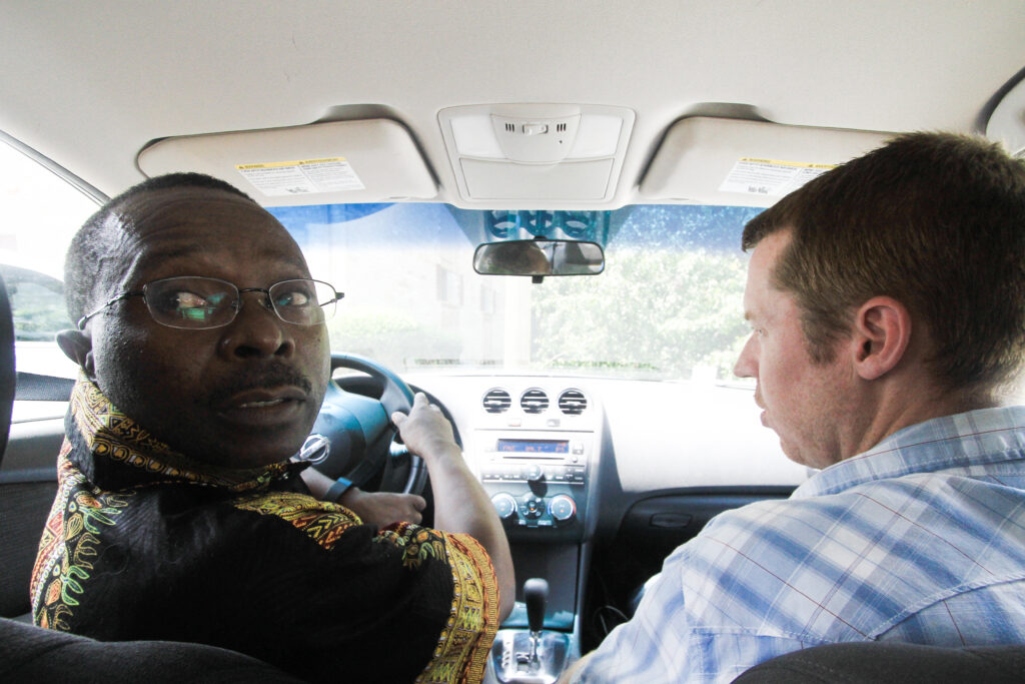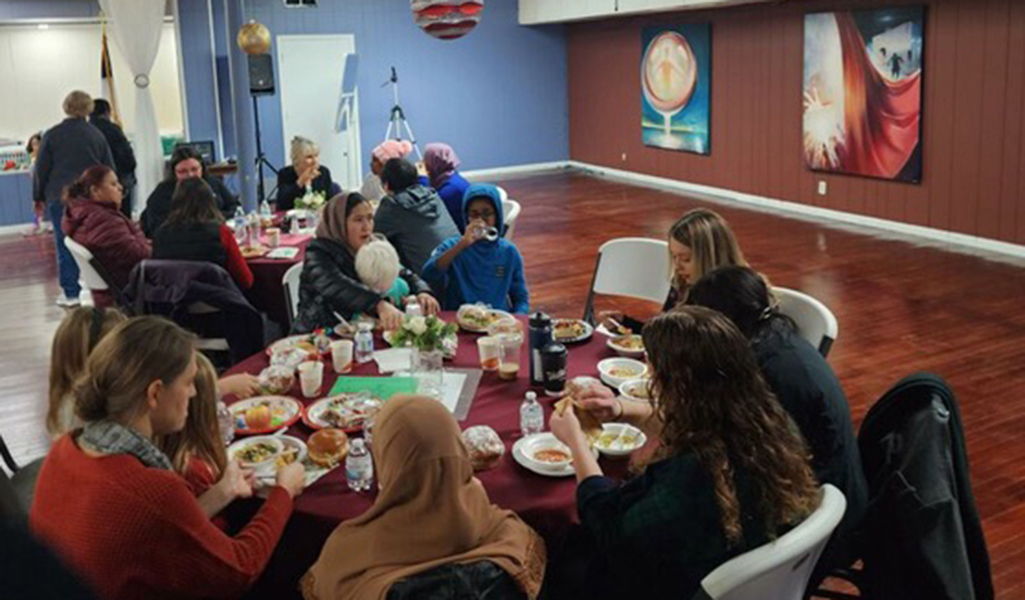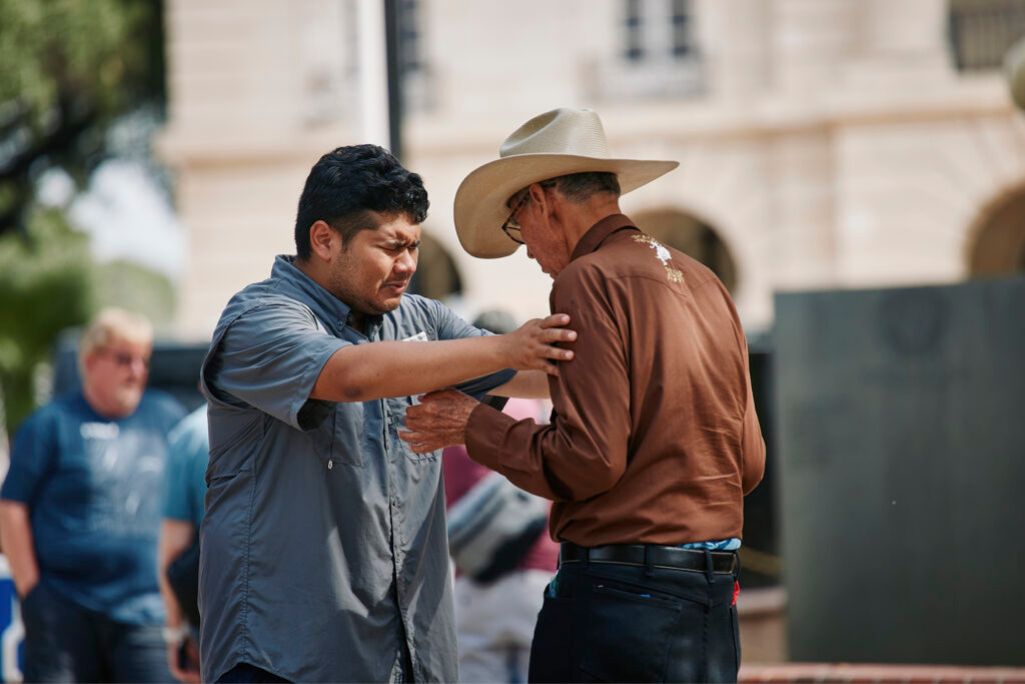
Jason Lee, Mission/Go pastor at Clarkston International Bible Church and director of the Acts 17 Initiative, teaches a Congolese refugee how to drive. Even though public transportation is available, learning to drive is a necessary step toward self-sustainability, Lee said.
CLARKSTON, Ga. (BP) — There are different ways Christians can help refugees adjust to America, but they all tend to revolve around the subject of availability.
“We’re needing people willing to do life with refugee families,” said Jason Lee, Mission/Go pastor at Clarkston International Bible Church (CIBC).
When resettled refugees enter the U.S., various timetables begin, Lee said. They need to be enrolled in an English as a Second Language (ESL) program within ten days. The same goes for enrolling in employment services. Children are supposed to be enrolled in school within the first 30 days.
Lee also directs the Acts 17 Initiative to help those families settle and begin a new life. Launched in 2017, its goal is to educate, equip, engage and network with churches toward developing partnerships and strategies that assist immigrants and refugees.
“We ask churches to make a three-to-six-month commitment and serve as something akin to foster parents for these families,” he said. “In the first three months there are all these timelines that have to happen in the resettlement process. The parents are trying to do things like get a job and learn public transportation.
“Those already acclimated to American life can help them navigate those things.”
Clarkston has become known as the South’s Ellis Island. In 2021, the United Nations Refugee Agency reported 339,179 refugees entering the United States. That figure grew to 409,202 in 2023.
Crestview Baptist Church in Griffin, south of Atlanta, partnered with the Acts 17 Initiative five years ago.
“It opens your eyes,” said Thomas Hill, lead pastor. “We’ve helped at different events with things like sports, games, crafts and telling Bible stories to children. It has helped our church connect into those families.
“Scripture calls us to be aware of the sojourner, the people who had to leave their homes. Jason has his pulse on how churches can plug in. It helps open your eyes to what’s right there in your backyard.”
Acts 17 is locally based but is committed to helping churches nationwide build refugee and immigrant ministries suited for their context. One example of that at CIBC is through church members who are also schoolteachers, making the most of that role to assist refugee families. Another example is through a group of ladies who have a sewing ministry and teach others those skills.
Something as simple as learning how to pay a power bill online can go a long way in helping families rebuild a sense of security and consistency. Learning English, of course, is crucial from reading important documents to road signs.
“We’re helping them learn basic survival tools, like using Google Translate to understand the basic timeline required for new arrivals,” Lee said. “The resettlement agency may not have the bandwidth for a caseworker to help get kids enrolled in school, finding an ESL program and other opportunities. If their children are beyond high school age, we help them get their GED and a job.
“The church comes in to help.”
Time together opens doors for gospel conversations, he added.
“We’ve seen Muslims open their homes to Christians. They may have come here kind of hostile in their thinking toward American Christians,” he said, “but I can take you to a number of homes where they would now say ‘those American Christians helped us.’”


